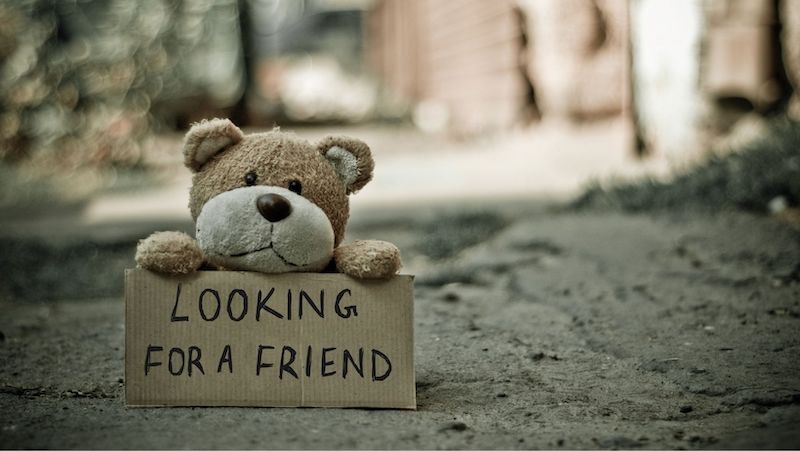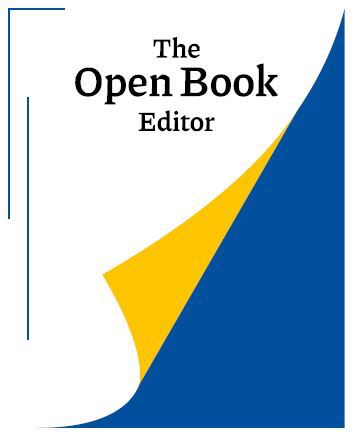Sadly, the stereotype of the alcoholic, depressed writer exists for a reason. Studies show that creatives, including writers, are more at risk of depression, anxiety disorders, and substance abuse. Hemingway, Plath, Foster Wallace, and many other authors and novelists famously struggled with their mental health.
While this can seem terrifying, there is good news. Depression and anxiety no longer carry the stigma they used to, which makes it easier to find help. The creative brain is more vulnerable to poor mental health, but we also have better ways of dealing with it.
Discover why writers are more susceptible to mental health issues. And learn how to manage your mental health without sacrificing your passion for writing.
What makes writers more susceptible to poor mental health?
Writing is a lonely endeavour
Writing a book, whether it’s fiction or non-fiction, can be a lonely undertaking. You spend hours on your own crafting believable characters, building a great story, doing research, and putting words down on the page in a manner to interest your readers.

The hard work required to create a book that readers want to read and publishers want to publish means you often have to sacrifice social interactions with others. While loneliness is not the same as being alone, failing to satisfy your social needs can lead to depression and other mental health disorders.
Rejection impacts self-esteem
Most writers face rejection at nearly every step of the writing process. And this doesn’t end with getting your book published. Even after publishing or self-publishing, writers can experience rejection through poor sales or bad reviews.
This is often made more difficult by the obscurity of the publishing industry. When our manuscripts are rejected, but we don’t get any detail, frustration and resentment grow.
Everyone says you need to develop a thick skin to make it as a writer. Well, easier said than done, right? Over time, rejection can take its toll and many writers give up or struggle with their mental health.
Poor support system
Unfortunately, naysayers are a common part of every artist’s life. Even writers with a strong support system can fall victim to the negative commentary of other people around them. When a family member, a friend, or even a stranger tells you your work isn’t good or that you’ll never be a published writer, it can have a direct—and very negative—impact on your mental health.
Many people don’t even have to say anything negative to show a lack of support. Maybe you asked a friend to read your manuscript and they didn’t find the time. Perhaps the feedback from an agent is so generic that you don’t know if they are pleased with your writing or not.
All these things harm our confidence and make us question our decision to write. In turn, this creates inner conflicts as we try to reconcile our desire to write with what we think the world is telling us.
It’s hard to be creative in the 21st century
While social media may serve as a useful (and increasingly necessary) tool for writers to promote themselves and their work, it is also a drain on your creativity and self-worth. The online world is both a constant distraction and fosters feelings of inadequacy when you compare yourself to others.

Now, social media can also be a significant source of information and research. But the unending stream of noise makes it difficult to find a healthy balance between creativity and positive mental health.
Furthermore, the need to be online always denies us creatives a valuable resource to develop and foster ideas. This is something author Joshua Gillingham calls “micro-spaces”. These are the small moments in the day when our brains are free to wander. Reflection time that TV, mobile phones, magazines, etc. all seek to occupy.
In my experience, these micro-spaces are exactly when my best ideas appear. Not during dedicated brainstorming sessions. Not during my scheduled writing time. Not while doing research or hammering out words on the keyboard. They float into my mind during those empty moments.
Joshua Gillingham, author of The Gatewatch
Expectations vs. reality
We’ve all heard about writers who receive hefty six-figure advances for their first book. What follows is a star-studded film deal and overnight worldwide fame, right?
While it’s great to dream big, the reality is that such success is very rare. Few of us will be able to quit our day jobs to write full time, and we’ll probably never get Stephen King-rich from our work.
It can be tough for creative types to accept this. The constant struggle to balance your expectations against reality can lead to struggles with mental health.
Difficult to make money
Contrary to the expression, money doesn’t make the world go round, especially for creative people, like you. But it’s a necessity, nonetheless. We all need to pay the bills and afford goods and services that keep us healthy and happy.
Because it can be difficult to make a living as a writer, it is easy to fall into the money trap of either worrying about our finances often or setting writing aside for a better paid but less fulfilling career. Both outcomes can lead to the mental health of writers, authors, and novelists to suffer.
What can you do to manage your mental health as a writer?
Most of us who have been writing for a little while have experienced rejection, despaired at our apparent lack of success, or felt our work doesn’t measure up (and wanted to burn all our manuscripts, too).
But you don’t need to let your mental health suffer or give up writing. Here are some ways to stay positive and confident about your author’s career.
Find a writing community
No one can understand your struggles with mental health quite like other writers.
One of the best ways to manage the highs and lows of writing is to find like-minded creatives. #WritingCommunity on Twitter and #WritersofInstagram on Instagram are great places to find other writers online. Or you can look up writing groups in your area to meet people face-to-face and critique each other’s work while supporting each other as you each pursue your goals.

At The Open Book Editor, we also offer one-on-one author coaching and positive mindset training. We can support you before, during, and after the writing process, teach you more about the publishing industry and your options, and help you stay upbeat about your writing in the face of any challenges.
Separate your personal value from your writing
Because writing forms such a huge part of your life, it may seem like your self-worth is directly linked to your success as a writer. We believe we’ll feel valued and fulfilled only once we ‘make it’.
But what does it mean to make it? Often, we think it means getting a publishing contract or making lots of money. But these things are no guarantee of happiness, as attested to by the aforementioned authors.
If this seems familiar, take a step back and remind yourself that financial success as an author won’t guarantee happiness. Instead, seek pleasure and fulfilment in the act of writing, itself.
Repeat after me: you have intrinsic value as a person. You have hobbies, passions, and quirks outside of writing, all of which contribute to making you an awesome human being!
Make meditation a part of your writing practice
As a writer, you understand the need to develop and hone your skills to improve. Well, you should take the same approach to your mental health. Exercise your brain and check in with yourself daily by reminding yourself of the things for which you feel gratitude and imagine how good you will feel if and when you achieve your writing goals.
Meditation exercises are great ways to not only centre yourself, but to foster a sense of focus you can carry over into your writing, as well. So, try meditating before you write every day. It will strengthen your creativity, help you filter out online chatter, and boost your mental health.

(If you’re new to meditation, try a guided meditation on YouTube. They are free, most are short, and you can find one that works for you.)
Know when to take a break
Sometimes, the best thing you can do for your mental health as a writer is to take a break. It’s natural to need an occasional holiday, and never feel guilty about setting aside time to recover your mental health.
Perhaps you can seek out a little R&R while your manuscript is in the capable hands of a professional editor. Read a good book (or a bad one), take a bubble bath, or go for long walks. Whatever helps you to feel more relaxed and at ease. Your creative brain will thank you for it, and you’ll return to your writing with a more positive outlook.
What if it’s still not working?
First, don’t give up writing. Most creatives will find themselves drawn back to their artistry at one point or another, so you need to find ways to manage things long-term.
But while writing a book may be a lonely endeavour, managing your mental health doesn’t have to be.
If you’ve tried the above tips but don’t feel they’re helping you, consider reaching out to a mental health professional. Book an appointment with your GP, explain what you’re going through, and ask them to refer you to an expert. Or contact a therapist online or through a local mental health charity.
If you are based in the UK, you can find more information about your options with the NHS here. Otherwise, find the contact details of a charity, such as Mind, here.
A therapist or other licensed professional can help boost your self-esteem and show you how to manage your mental health. And it never hurts to have one more person in your corner, cheering you on!


